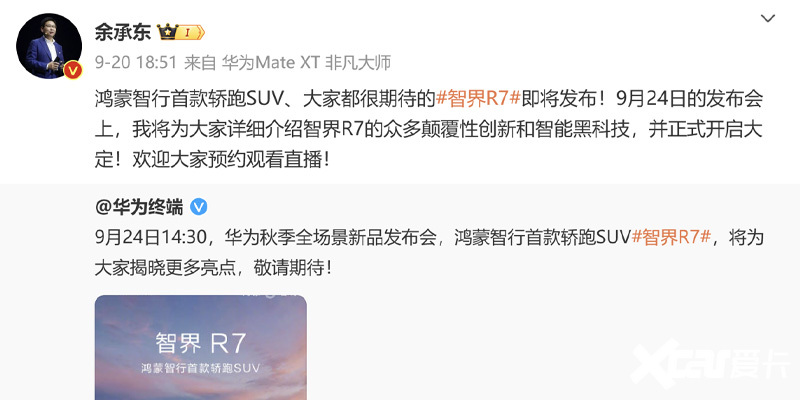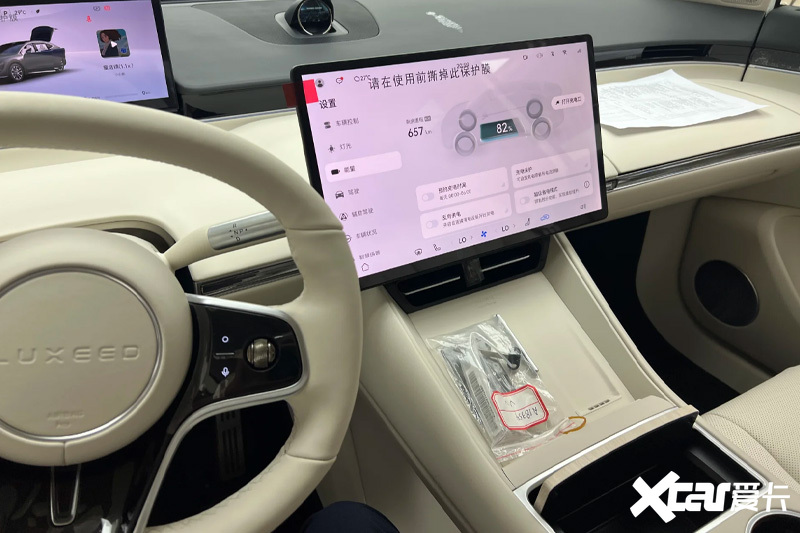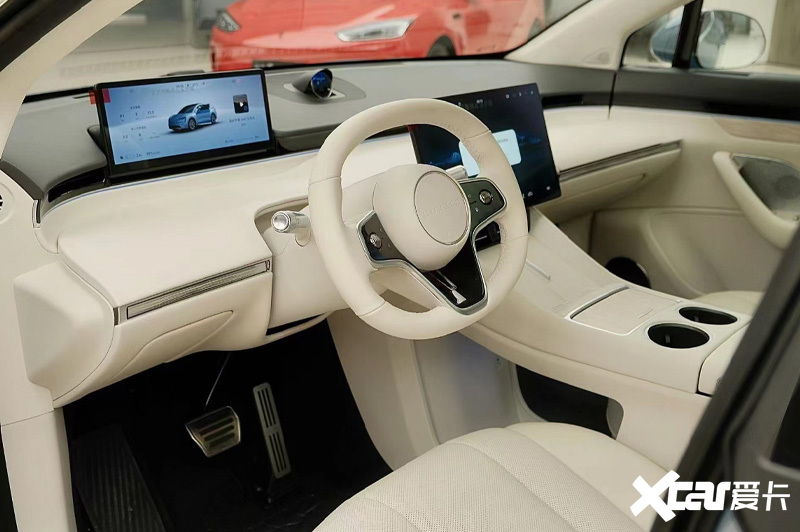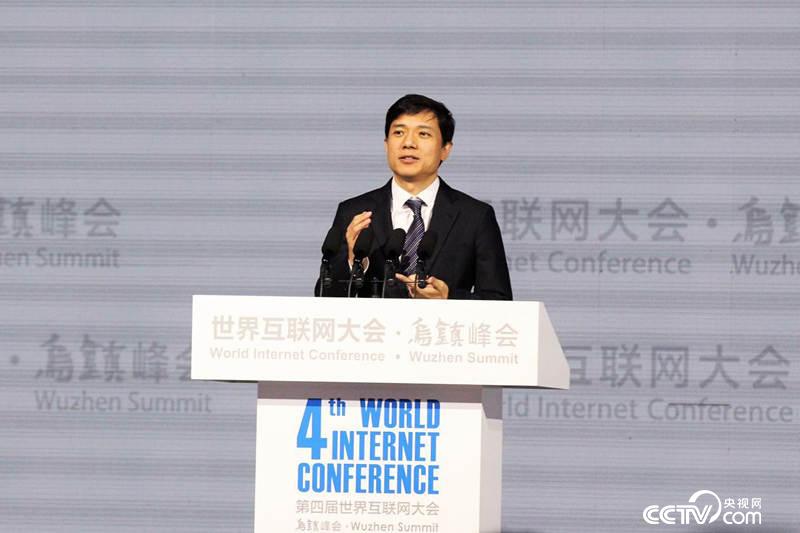The National Health and Wellness Committee held a regular press conference in Beijing on June 5 to introduce the progress and effectiveness of eye health work in China.
In 1999, the World Health Organization and the International Association for the Prevention of Blindness launched the "Vision 2020" global initiative, with the mission of eliminating avoidable blindness (cataract, trachoma, river blindness, child blindness, low vision and ametropia) on a global scale by 2020, and reversing the trend that avoidable visual injuries may double from 1990 to 2020. China is the first country in the western Pacific to launch the "Vision 2020" action. Since then, the core strategy and objectives of the "Vision 2020" action initiative have been integrated in the formulation of the 11th and 12th Five-Year plans for preventing and treating blindness. At the World Health Assembly in 2013, after the resolution "Universal Eye Health: Global Action Plan 2014-2019" was passed (still a part of the "Vision 2020" action initiative), the country formulated the "Thirteenth Five-Year National Eye Health Plan (2016-2020)" according to the requirements of the new resolution and the overall requirements of building a healthy China and deepening the reform of the medical and health system.
The three core strategies of "Vision 2020" have been fully incorporated into our national defense blind treatment and eye health work: disease control combined with primary health care, human resource development, infrastructure construction and appropriate technology application.
Governments at all levels in China vigorously promote the prevention and treatment of blindness, constantly improve the national, provincial (autonomous regions and municipalities directly under the Central Government) and municipal management systems for prevention and treatment of blindness and the prevention and treatment network of eye diseases in counties, townships and villages, and ensure the accessibility of eye health services at the grassroots level through the construction of the prevention and treatment network. In addition, the work mode of preventing and treating blindness has changed from a single work of preventing and treating blindness to multi-faceted eye health management. At present, more attention is paid to moving forward the gateway and sinking resources, bringing primary eye care into primary health care, bringing ophthalmic diseases into chronic disease management, establishing eye health files, tracking and following up eye care and other long-term mechanisms. The prevention of blindness in China adheres to the government-led, multi-sectoral cooperation and the participation of the whole society. Through the overall planning and policy guidance of the government, the academic groups’ technical advantages, the participation of private hospitals and the active participation of social organizations, a model of eye disease prevention and treatment suitable for China’s national conditions has been formed, providing comprehensive, fair and accessible eye health services for the people.
Cataract is the first blinding eye disease in China.
Cataract is the first blinding eye disease in China. Through all-round long-term efforts, such as developing free cataract treatment project, realizing full coverage of medical insurance and improving the level of ophthalmology service in county-level medical institutions, the number of cataract operations per million people in China has increased from 83 in 1988 to 2205 in 2017, an increase of nearly 27 times. The surgical coverage rate of cataract patients has increased to 62.7%, and the goal that the number of cataract operations per million people in China should reach more than 2,000 by the end of 2020 proposed in the "Thirteenth Five-Year National Eye Health Plan" has been achieved ahead of schedule. In recent years, the state has promulgated a series of policies on promoting the construction and development of medical complexes, promoting the construction of graded diagnosis and treatment system, and comprehensively improving the comprehensive diagnosis and treatment capacity of county-level hospitals. The ophthalmic service capacity of county hospitals in China has been further improved. At present, about 90% of counties in China have ophthalmic medical institutions, and about 90% of them can independently carry out cataract surgery.
Our government actively promotes the early screening and early treatment of childhood blindness.
The proportion of children’s blindness in the total number of blind people is low, but because children are in the early stage of their life cycle, the number of years of disability life lost and the time of disability is long, children’s blindness often brings great burden to families and society. In 2006, the second national sampling survey of disabled people showed that the sampling ratio was 1.93%, the number of children aged 0-6 was 51,328, and there were 193 cases of visual disability, with a visual disability rate of 3.76‰. Over the years, the Chinese government has been actively promoting the early screening and early treatment of blindness in children. Among them, the incidence of retinopathy of prematurity has dropped from 20.3% in the 1990s to 10.8% in 2005, and the blindness rate has dropped significantly. In 2004, after the publication of "Guidelines for the Prevention and Treatment of Oxygen and Retinopathy in Premature Infants", a screening system was basically formed in Beijing, Shanghai, Guangzhou, Shenzhen and other places, which was under the responsibility of an eye center and jointly operated by several neonatal intensive care units. In 2013, in order to improve the quality of children’s health care, and further standardize the contents, methods, processes and assessment of children’s health care services in related fields, the state issued the Notice on Printing and Distributing the Technical Specifications for Children’s Eye and vision care (Wei Ban Fu She Fa [2013] No.26). In 2019, the state issued the "Notice on Doing a Good Job in Eye Care and Vision Examination for Children Aged 0-6", demanding that the establishment and improvement of the residents’ electronic health record information system be accelerated, and the electronic management of the vision health records of children aged 0-6 should be realized as soon as possible.Ensure that the contents related to children’s vision health records in children’s health records of 0-6 years old are completely, accurately and smoothly extracted when children enter school, and handed over to educational institutions in time. In addition, statistical indicators such as the number of children aged 0-6 who have eye care and vision examination, the number of children aged 6 who have vision examination, and the number of children aged 6 who have poor eyesight have been added to the Annual Report on Health Care and Health of Children under Seven. The coverage of eye care and vision examination for children aged 0-6 years and the establishment of electronic files of vision health have been included in the assessment system, and it is required that the annual coverage of eye care and vision examination for children aged 0-6 years will reach over 90% from 2019.
Until the early 1980s, the rehabilitation of low vision was still a blank in China. In 1983, Beijing Tongren Hospital set up the first low vision clinic in China, which filled the gap in the rehabilitation of low vision in China. In 1991, China incorporated the rehabilitation of low vision into the Outline of the Eighth Five-Year Plan for the Disabled in China. Since then, until the Thirteenth Five-Year Plan, the China Disabled Persons’ Federation has made the rehabilitation of low vision one of its key tasks. Through the establishment of the low vision rehabilitation department, training personnel, developing and supplying visual AIDS, and popularizing knowledge, it has trained a large number of low vision rehabilitation professionals and trained hundreds of thousands of parents of children with low vision. According to the National Plan for the Prevention and Treatment of Blindness (2012-2015), all provincial rehabilitation institutions for the disabled have established "low vision rehabilitation centers" to strengthen the service capacity building of low vision rehabilitation centers. Establish the production and supply service network of low-vision AIDS to improve the quality of life of low-vision patients. In 2013, the State issued the Notice on Printing and Distributing Technical Specifications for Children’s Eye and vision care, which clearly stipulated that newborns should be screened for eye diseases regularly after birth, so as to reduce the occurrence of children’s low vision from the source. By 2020, China has initially established a relatively complete service network covering urban and rural areas, and a policy system has been formed in various places to guarantee basic assistive devices services for patients with low vision.The service ability and service status of fitting visual AIDS have been improved, and the adaptation rate of basic assistive devices for disabled people and disabled children with needs has reached over 80%. It can be predicted that under the overall planning of the national health administrative department and the China Disabled Persons’ Federation, through the joint efforts of the whole society, especially professional and technical personnel, China will gradually form a complete and formal evaluation and rehabilitation system to help patients with low vision improve their quality of life and participate in social life.
The number of ophthalmologists in China is estimated to have reached 40 thousand.
The number of ophthalmologists in China was 19,100 in 2003, and now it is estimated that the number has reached 40,000, which is more than twice that of 2003. As early as 2014, there were 1.13 ophthalmologists in every 50,000 people in China, which has exceeded the WHO requirement that there should be one ophthalmologist in every 50,000 people in a well-off country. In 2018, the number of doctors with cataract surgery ability in China was 13,835, 2.33 times that of 2000 (5,939). The number of full-time nurses in ophthalmology has also increased significantly, from 16,100 in 2003 to 50,000. In addition, the proportion of middle and senior ophthalmologists and the ratio of ophthalmologists to doctors and nurses are gradually becoming reasonable. The number of optometrists increased from 1487 in 2006 to 6218 in 2018, a fourfold increase. The number of ophthalmic medical service institutions has increased from more than 4,000 in 2006 to more than 6,000 today, an increase of more than 50%. The number of ophthalmic beds has increased from more than 40,000 in 2000 to more than 130,000 in 2018, a threefold increase.
Trachoma is no longer a public health problem that harms our visual health.
Through the long-term investment and efforts of the China Municipal Government, the patriotic health campaign of the whole society, the implementation of a series of measures such as environmental improvement and the promotion of SAFE strategy, the improvement of economic level and medical level, the state’s investment in rural medical construction and medical insurance, the public health conditions and medical conditions have been greatly improved, and the accessibility of antibiotics for trachoma patients has been greatly improved. In 2014, China achieved the goal of eliminating blinding trachoma proposed by WHO. On May 18th, 2015, it was officially announced at the 68th World Health Assembly: In 2014, China met the requirements of WHO to eradicate blinding trachoma, and eliminated blinding trachoma ahead of schedule. Trachoma is no longer a public health problem that harms our visual health. In 2019, the World Health Organization certified the work of eliminating blinding trachoma in China according to new procedures and standards.
The prevention and treatment of uncorrected ametropia has become an important part of eye health work in China.
屈光不正中的近视是世界范围内发病率最高且年龄跨度最大的眼健康问题,其中高度近视视网膜病变在致盲原因中占相当高的比例,未矫正屈光不正的防治已成为我国眼健康工作的重要内容。2018年下半年,国家卫生健康委员会同教育部、民政部组织开展了2018年全国儿童青少年近视调查工作。2019年4月29日,国家卫生健康委员会举办新闻发布会,介绍2018年儿童青少年近视调查结果。调查结果显示,2018年全国儿童青少年总体近视率为53.6%。其中6岁儿童为14.5%,小学生为36.0%,初中生为71.6%,高中生为81.0%。近年来,党中央、国务院高度重视儿童青少年近视防控工作,近视防控已成为国家战略。2016年至2019年,连续4年将全国“爱眼日”的主题聚焦在儿童青少年的近视防控。为做好近视的防治工作,2018年6月5日,国家卫生健康委员会召开专题新闻发布会,介绍儿童青少年科学防控近视情况,同时发布了《近视防治指南》《弱视诊治指南》和《斜视诊治指南》三部指南。2018年8月28日,习近平总书记再次就儿童青少年近视问题作出重要指示,强调全社会都要行动起来,共同呵护好孩子的眼睛,让他们拥有一个光明的未来。为贯彻落实习近平总书记关于近视问题的重要指示批示精神,切实加强新时代儿童青少年近视防控工作,2018年8月30日,教育部会同国家卫生健康委员会、体育总局、财政部、人力资源社会保障部、市场监督管理总局、国家新闻出版署、广播电视总局八部门制定了《综合防控儿童青少年近视实施方案》(以下简称《实施方案》)。《实施方案》不仅明确了家庭、学校、医疗卫生机构、学生、政府相关部门应采取的防控措施,还明确了八个部门防控近视的职责和任务。2019年10月,国家卫生健康委员会疾控局组织制定并印发了《儿童青少年近视防控适宜技术指南》,指导科学规范开展防控工作,提高防控技术能力。全国防盲技术指导组组织编写的《儿童青少年近视防治科普100问》,对近视防治中的疑问和误区,给出了科学解释。目前,在全社会已营造了儿童青少年近视防控“政府主导、部门配合、专家指导、学校教育、家庭关注”的良好氛围。
With the great attention of the party and the government, the ophthalmology medical and health undertakings have developed rapidly through various joint efforts. The results of two epidemiological surveys of blindness and visual impairment in nine provinces and cities in 2006 and 2014 showed that the prevalence of blindness and moderate and severe visual impairment in China decreased by 37.8% and 15.4% respectively according to the assessment of daily life vision. According to the best corrected vision, it decreased by 37.6% and 27.2%. It is estimated that only among people over 50 years old, the number of blind people in China has decreased by more than 700 thousand, and the number of patients with severe visual impairment has decreased by more than 500 thousand.
At present, the biggest challenge for eye health is the increasing population and aging.
With the promotion of national defense blindness, the improvement of national economic level, the change of people’s lifestyle and the change of population structure in China, the spectrum of blinding eye diseases has changed greatly. The main blinding eye diseases have changed from infectious eye diseases of trachoma in the past to metabolic and age-related non-infectious eye diseases, mainly cataract, keratopathy, retinal diseases, ametropia, glaucoma and amblyopia. The biggest challenge facing China’s eye health at present is the increase of population, especially the increasing aging. By 2019, China’s population over 60 years old has reached 253.88 million, accounting for 18.1% of the country’s total population, and the elderly population is still increasing. The increase in the number of elderly people means that the number of patients with age-related eye diseases is increasing, including ametropia and cataract, which are the main burden of eye diseases in China. In addition, the common blinding eye diseases, including glaucoma, macular degeneration and other fundus diseases, are also age-related eye diseases, and the prevalence rate in the elderly population is much higher than that in young people. These are still the challenges faced by eye health work in China and the focus of eye health work in the future.
除了推动我国自身眼健康事业的发展,我国在防盲与眼健康领域加强国际交流与合作,践行我国全球卫生战略。全国防盲技术指导组整合全国防盲资源,启动的集流行病学调查、专业培训、医疗和健康教育为一体的“光明行”项目中,除了我国老少边困及高原地区的4万余名白内障患者受益,该项目还从2008年开始,跨出国门,在亚太地区的朝鲜、柬埔寨、蒙古国、老挝、越南、孟加拉国、巴基斯坦等国家及地区开展公益活动。2010年“光明行”走入非洲,在津巴布韦、马拉维、赞比亚和莫桑比克等开展白内障复明活动。2015年12月习近平主席在中非合作论坛约翰内斯堡峰会开幕式上致辞时将“中非公共卫生合作计划”作为未来三年同非方重点实施的“十大合作计划”之一予以提出。2015年国家卫生健康委出台的《推进“一带一路”卫生交流合作三年实施方案(2015-2017)》中也明确将开展“光明行”眼科义诊活动列为卫生发展援助的重要内容之一。至今,中国已在40多个国家开展“光明行”活动,其中十多个国家是多次活动,帮助数万名白内障患者重见光明。
"Guangmingxing" not only provides free cataract surgery for local people, but also donates advanced ophthalmic surgery equipment and instruments and medicines. It also provides students with vision screening, donates glasses, and carries out complicated fundus diseases and glaucoma surgery. Academic lectures and clinical teaching have been held in the local area, and an "Ophthalmology Cooperation Center" has been established with relevant countries to conduct long-distance consultation on eye diseases by using the Internet and expand various forms of technical exchanges and cooperation. At the same time, we should pay attention to personnel training and organize local doctors to go to China for training. China’s internationalization of public welfare for the prevention of blindness has brought light to the people of the aided countries, fully demonstrated China’s actions and contributions in building a community of human destiny and countries along the Belt and Road, and also became an important force in China’s diplomacy, further promoted international exchanges and cooperation in health, and enhanced China’s voice and influence in regional and global multilateral health governance mechanisms.
With the change of lifestyle, social development and aging population, the spectrum of ophthalmic diseases in China has undergone major changes. According to the National Health China 2030 Program, we should integrate eye health into general health, formulate our eye health plan, and formulate the 14 th and 15 th eye health plan according to our national conditions. Change the unbalanced regional allocation of ophthalmic resources in China, promote balanced development, shift the treatment of blinding eye diseases to disease prevention and control, pay special attention to the sinking of major blinding eye disease prevention and control technologies, strengthen the construction of primary ophthalmology and ophthalmology teams, and continue to improve the construction of China’s three-level blindness prevention system. It is necessary to continue to promote the training and promotion of appropriate technologies that can prevent and control blinding eye diseases, and move the gateway forward to reduce the incidence and increase the control effect. When the technology is mature, we should promote the screening of eye diseases based on artificial intelligence technology to achieve early detection and early treatment of blinding eye diseases, and try our best to bring the screening of common blinding eye diseases into the chronic disease management system under the premise of China’s economic conditions.
Myopia of children and adolescents has become the main cause of vision damage in China.
Myopia of children and adolescents has become the main cause of vision damage in China. We should resolutely implement the national implementation plan on myopia prevention and control to achieve the goal of myopia prevention and control of children and adolescents in China. For the evaluation of cataract surgery, we should not only consider the quantity, but also evaluate the quality, pay attention to the important index of cataract surgery coverage, formulate the prevention and control index of cataract surgery according to the national conditions, and moderately relax the indications according to the level of social and economic development. In addition, in terms of commonly used ophthalmic equipment and technology, we should vigorously promote localization and completely change the current situation of relying heavily on imported equipment and technology. Breakthroughs have been made in common technology and neck sticking technology. Through scientific popularization, we will enhance people’s understanding of the basic knowledge of eye disease prevention and control, improve the awareness rate, enhance people’s awareness of blinding eye disease prevention and control, and incorporate popular science work into the national eye health plan and the national health science popularization plan. Due to the extension of life expectancy, the increase of the total population, the acceleration of the aging process of the population, and the continuous improvement of people’s demand for eye health, the prevention and treatment of eye diseases in China is still an arduous task, and the primary eye care work still needs to be strengthened, and the concept of healthy living of like eyes needs to be further strengthened.



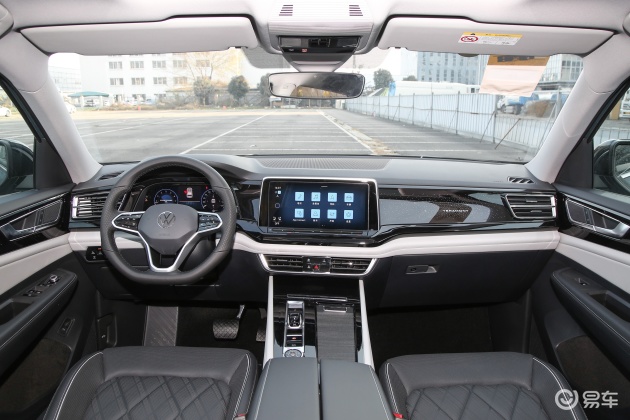

 Although Mr. Yu repeatedly publicly denied the rumor that he was banned from being "far ahead" once, and said that because "those four words" were called rotten by everyone, Mr. Yu was unwilling to say it, and there was no fine. Ren Zhengfei, founder of Netcom Huawei, forbids Yu Chengdong to use "far ahead", and every time he mentions "far ahead", he will be fined 10,000 yuan. In this regard, Yu Chengdong has responded that it is a rumor.
Although Mr. Yu repeatedly publicly denied the rumor that he was banned from being "far ahead" once, and said that because "those four words" were called rotten by everyone, Mr. Yu was unwilling to say it, and there was no fine. Ren Zhengfei, founder of Netcom Huawei, forbids Yu Chengdong to use "far ahead", and every time he mentions "far ahead", he will be fined 10,000 yuan. In this regard, Yu Chengdong has responded that it is a rumor.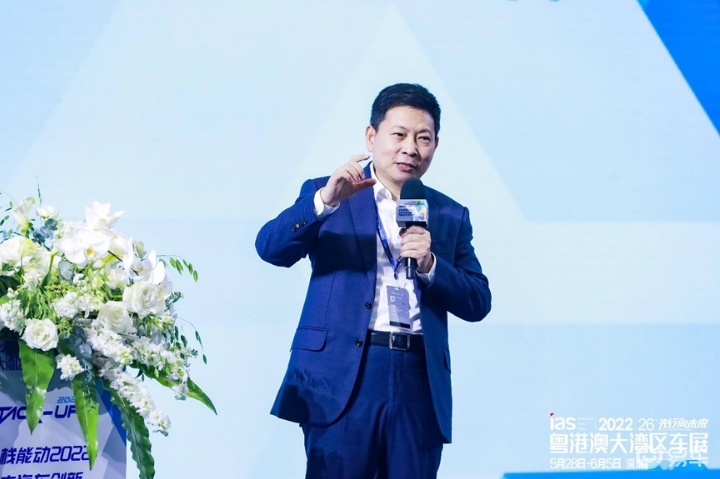 According to the introduction of professional legal practitioners, China’s advertising law aims to curb the excessive propaganda behavior of enterprises, explicitly prohibit the use of extreme words such as "most" in advertisements, and highlight its own products by belittling its opponents. This regulation sets strict requirements on the authenticity, legality and integrity of advertising content, and ensures that advertisements will not mislead consumers, which is its core principle. However, Yu Chengdong’s previous expressions, such as "far ahead", are controversial because they touch the extreme vocabulary boundary of advertising law. To this end, he once chose "far beyond" as an alternative, in order to better meet the requirements of laws and regulations.
According to the introduction of professional legal practitioners, China’s advertising law aims to curb the excessive propaganda behavior of enterprises, explicitly prohibit the use of extreme words such as "most" in advertisements, and highlight its own products by belittling its opponents. This regulation sets strict requirements on the authenticity, legality and integrity of advertising content, and ensures that advertisements will not mislead consumers, which is its core principle. However, Yu Chengdong’s previous expressions, such as "far ahead", are controversial because they touch the extreme vocabulary boundary of advertising law. To this end, he once chose "far beyond" as an alternative, in order to better meet the requirements of laws and regulations.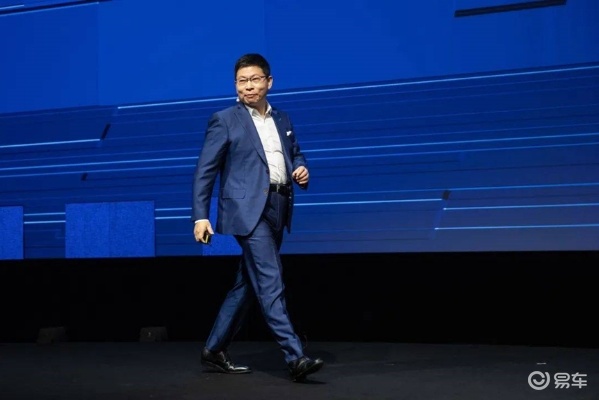 At the same time, Huawei also needs to further strengthen the internal audit and management mechanism to ensure the compliance and integrity of advertising content, so as to safeguard its brand image and consumer rights. Although from the marketing effect, expressions such as "far ahead" and "the best in the world" have really attracted a lot of attention and achieved the purpose of gaining traffic, there are still defects in compliance. To sum up, although Yu Chengdong’s marketing strategy has achieved remarkable results in attracting attention, Huawei still needs to balance the relationship between marketing effect and advertising compliance to ensure the authenticity and integrity of advertising content, so as to maintain its long-term brand image and consumer trust.
At the same time, Huawei also needs to further strengthen the internal audit and management mechanism to ensure the compliance and integrity of advertising content, so as to safeguard its brand image and consumer rights. Although from the marketing effect, expressions such as "far ahead" and "the best in the world" have really attracted a lot of attention and achieved the purpose of gaining traffic, there are still defects in compliance. To sum up, although Yu Chengdong’s marketing strategy has achieved remarkable results in attracting attention, Huawei still needs to balance the relationship between marketing effect and advertising compliance to ensure the authenticity and integrity of advertising content, so as to maintain its long-term brand image and consumer trust.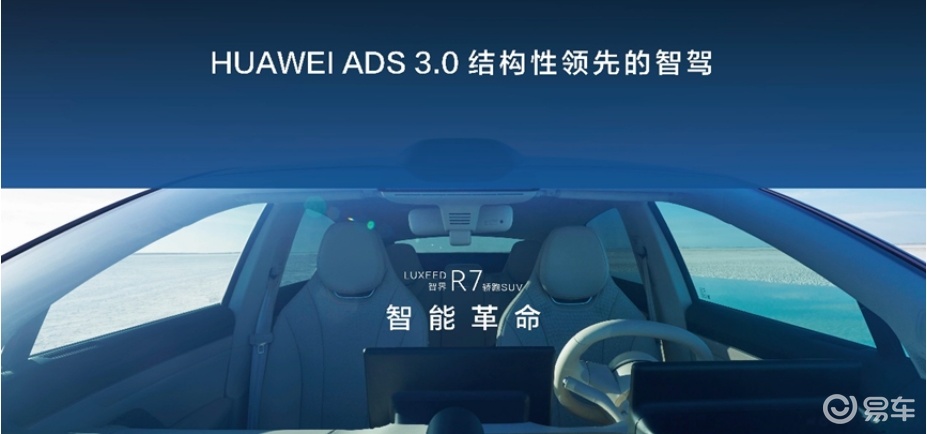 Although Yu Chengdong was nicknamed "Yu Dazui" because he often made exaggerated remarks, most of his "big talk" came true according to the subsequent actual results. This style of doing things makes many users think that his remarks are not pure bragging, but based on objective facts. Although there are many exaggerated elements in them, they are not much different from the facts on the whole.
Although Yu Chengdong was nicknamed "Yu Dazui" because he often made exaggerated remarks, most of his "big talk" came true according to the subsequent actual results. This style of doing things makes many users think that his remarks are not pure bragging, but based on objective facts. Although there are many exaggerated elements in them, they are not much different from the facts on the whole. While other car companies are still trying to catch up with ADS2.0, Yu Chengdong claims that ADS3.0 has achieved "generational leadership". Although it is boastful, this statement is not entirely groundless. For competitors, if we despise Yu Chengdong’s remarks, it may be the moment when they face a crisis. Huawei is famous for its R&D strength. Once it has established its leading position, it will continue to increase its investment and expand its advantages, which is exactly what makes Huawei a "long-distance runner". Therefore, although Yu Chengdong’s remarks are exaggerated, the strength of Huawei in the field of intelligent driving reflected behind it cannot be underestimated.
While other car companies are still trying to catch up with ADS2.0, Yu Chengdong claims that ADS3.0 has achieved "generational leadership". Although it is boastful, this statement is not entirely groundless. For competitors, if we despise Yu Chengdong’s remarks, it may be the moment when they face a crisis. Huawei is famous for its R&D strength. Once it has established its leading position, it will continue to increase its investment and expand its advantages, which is exactly what makes Huawei a "long-distance runner". Therefore, although Yu Chengdong’s remarks are exaggerated, the strength of Huawei in the field of intelligent driving reflected behind it cannot be underestimated.








